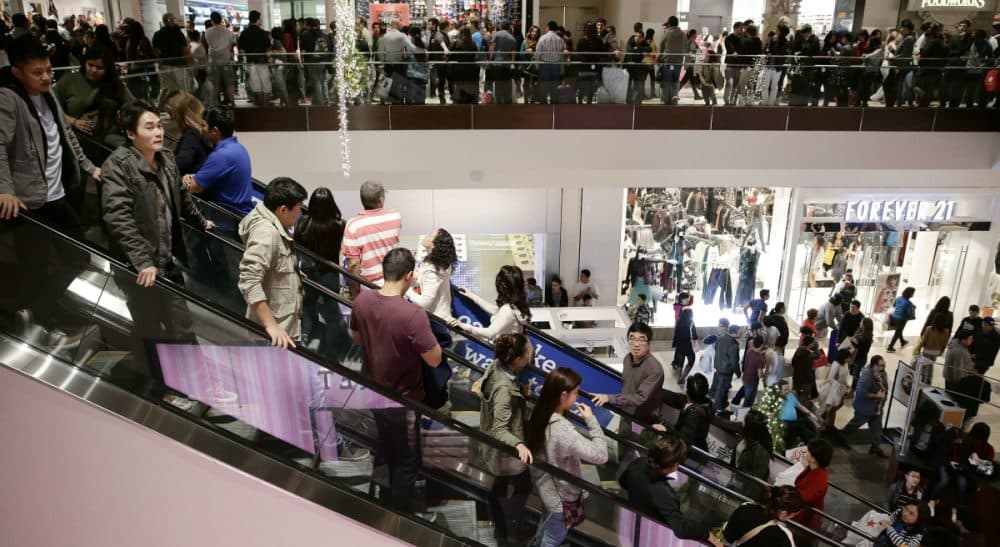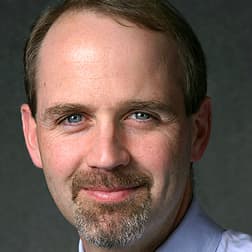Advertisement
Commentary
The Curse Of Black Friday

This week will see our society at its best and at its worst. On Thursday, most Americans will gather with friends and family to celebrate Thanksgiving. Then later that same evening a large subset of Americans will participate in the grotesque spectacle known as Black Friday, a national frenzy of materialism and bad behavior that seriously undermines a holiday designed to make us pause and give thanks for our many blessings, both personal and national.
What makes Thanksgiving so special, so worthy of protection from the corrupting character of Black Friday? Unlike Christmas and Easter, Thanksgiving has a universal appeal that cuts across all religious traditions. Muslims, Hindus and Buddhists are just as likely to gather together on Thanksgiving as Christians, Jews and non-believers. The same is true for Thanksgiving’s appeal regardless of one’s ethnic or racial background, an aspect to the holiday that has been so important in our remarkably diverse society.
Following Thanksgiving with Black Friday is the equivalent of establishing July 5 as British Empire Day, or November 12 as Draft Dodger’s Day.
Thanksgiving also achieves its central purpose better than most other American holidays. Few Americans spend Labor Day contemplating the importance of collective bargaining rights or the eight-hour work day. Even fewer devote much time to pondering the genius of democracy on President’s Day.
But Thanksgiving? It’s a day unambiguously focused on that most important of virtues: gratitude. We stop what we’re doing, gather with friends and family (often after traveling long distances) and share a meal celebrating what President Abraham Lincoln termed when establishing Thanksgiving in 1863, our “blessings” and “gracious gifts.” And note that its placement on a Thursday creates a four-day weekend that allows us to extend our enjoyment of the people for whom we are thankful.

For most of its history, while other major holidays grew increasingly commercialized, Thanksgiving seemed incorruptible, immune to the wily schemes of Madison Avenue and the merchandising industrial complex. That is, of course, until the early 2000s when the first symptoms of the cancer that is Black Friday appeared. Early on there were special store openings at 5 a.m. on Black Friday, but by 2010 major retailers began opening on Thanksgiving Day. Implicit in the endless ads about “door-buster” deals was the message that one should ditch the family gathering as early as possible in order to get to the mall. These ads also encouraged a frenzied fever of acquisitiveness (consider how many urge viewers to “grab” great deals).
As it grew in popularity, Black Friday gained a new feature: endless video footage of people smashing in store doors, assaulting retail staff and occasionally killing people in their quest to save 75 percent on an Xbox. And then there’s the dirty little secret of Black Friday: This retail madness requires several million Americans, many of whom would prefer to stay home, to leave their Thanksgiving celebrations and head off to their retail jobs.
Black Friday, in other words, beckons us — within just a few hours of giving thanks — to cast aside our gratitude in favor of a greedy lust for more, more, more. Think about it. Following Thanksgiving with Black Friday is the equivalent of establishing July 5 as British Empire Day, or Nov. 12 as Draft Dodger’s Day.
But Black Friday is not merely offensive for the way it tarnishes Thanksgiving. It also violates two core, often overlooked, American values.
But Black Friday is not merely offensive for the way it tarnishes Thanksgiving. It also violates two core, often overlooked, American values. First, the ideals that animated the founding fathers and their successors included a rejection of materialism and luxury. They associated those things with decadent European societies. In contrast, they insisted that citizens exert self-discipline and shun showy displays of wealth. Second, our tradition also called upon citizens to consciously set aside time from the hustle and bustle of the market. One needed time to worship, to study politics, to be with friends and family, to volunteer at church and charity — in short, to contribute to the common good. These traditions call upon Americans to think and act as citizens, not merely as shallow, venal consumers.
So this Thanksgiving let’s unite in our rejection of Black Friday. Instead, let’s dedicate the day after Thanksgiving to pursuits that reflect well on our society and our values by augmenting our sense of gratitude. Get outdoors, as the CEO of the outdoor activity outfitter R.E.I. has urged people in the #OptOutside campaign, and go for a walk or play a little touch football. Or stay inside in your pajamas and be thankful for a much-needed day of rest, leftovers, naps, crossword puzzles and conversation. Call it Slack Friday. Or better still, dedicate some portion of the day to advancing the common good by volunteering in your community. Call it Give Back Friday. Above all, avoid the senseless stampede of spending. That can wait until Saturday.
